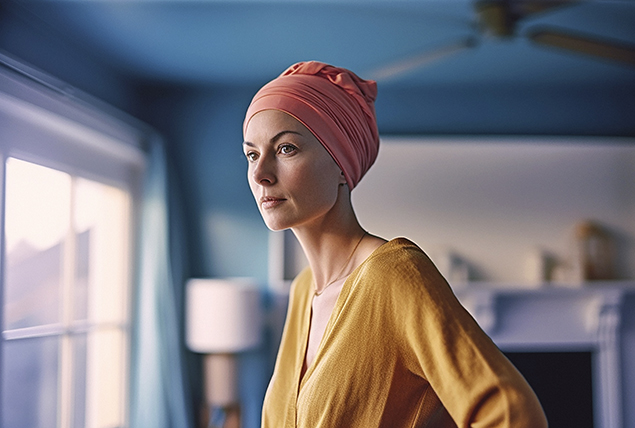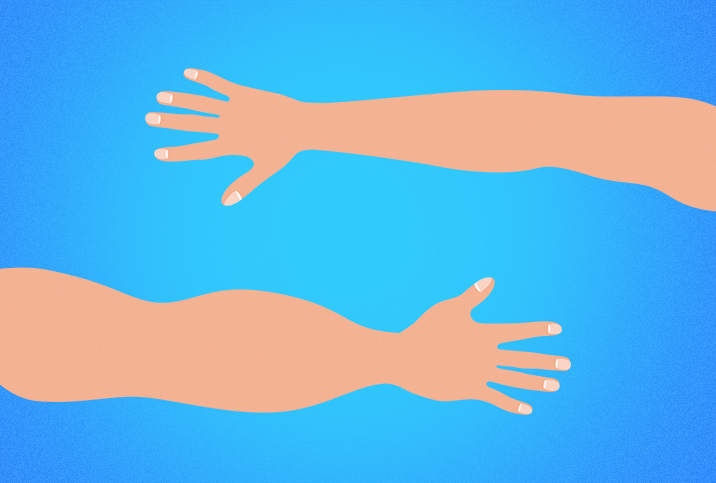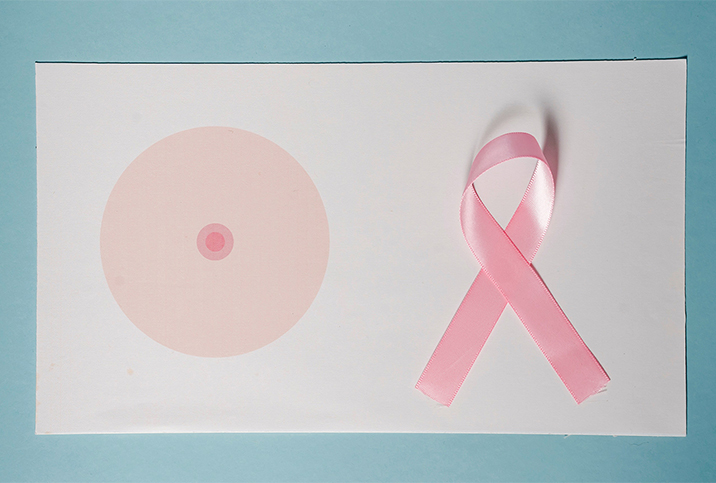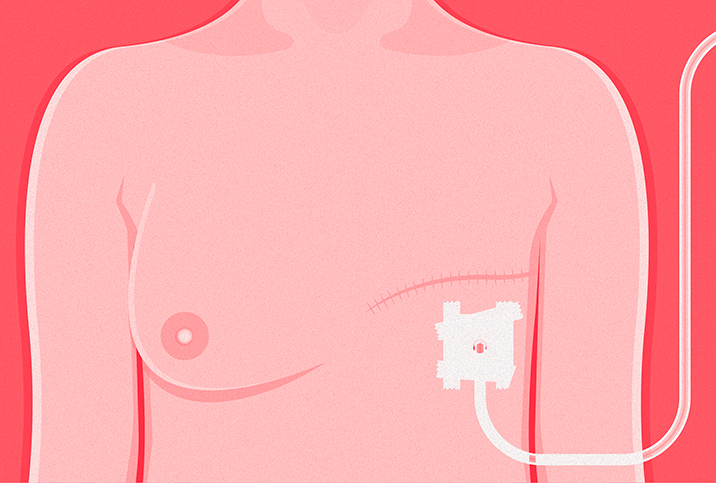What Is the Physical and Emotional Toll of Breast Cancer?

What does a lump in your breast feel like when it's cancer? How do you know if it's a sign of breast cancer?
We spoke to experts on breast cancer, including those who have experienced it first-hand. They revealed what the disease feels like physically and mentally.
How does breast cancer physically feel?
Physical changes to your breasts can be a symptom of breast cancer. These breast changes can vary from lumps to a change in the texture of your breast skin to nipple discharge. However, not every change is a symptom of breast cancer.
Breasts can change due to your period, menstrual cycle, pregnancy, breastfeeding, menopause and age, according to the Cancer Council Victoria.
But what happens when you feel a lump, go to a breast cancer screening and find out it's cancer?
"The impact of a breast cancer diagnosis varies from patient to patient," said Faith Goldman, M.D., a fellowship-trained breast surgical oncologist with Atlantic Medical Group in New Jersey. "There is no 'one size fits all.' This can range from physical changes to a patient's body, including shape, weight, hair loss, as well as infertility, early-induced menopause and more.
"These effects may also vary from mild to severe throughout a patient's cancer experience."
One of the most significant changes a breast cancer patient may go through is a mastectomy: breast cancer treatment that requires the removal of one or both breasts.
This procedure involves a surgeon removing part of or the entirety of the breast tissue to either remove cancerous breast tissue or prevent someone from developing cancer if they are considered high risk due to a family history of breast cancer.
"This is also something that varies with each individual patient. Physically, many patients have reported they have felt numbness, pain, tenderness and soreness around the breast incision. Stitches can feel itchy, throbbing or even a tingling sensation in the area," Goldman said.
The emotional toll of breast cancer
Of course, the diagnosis and treatment of breast cancer won't just impact you physically. Even breast cancer detected in the early stages will likely impact you emotionally.
"Body image changes can be challenging for many with breast cancer. Hair loss and surgery to the breast can alter how women feel about their bodies," said Amy Pilotte, M.S.N., an adult nurse practitioner and senior oncology nurse in Rhode Island. "Many patients tell me losing their hair is the hardest part. Though their hair does grow back, for some, the hair is different or can take years to become their 'norm.'"
Breast cancer patients can be a high-anxiety population, she added. Survivors often fear a recurrence. That's why seeking mental health services is important. Pilotte sees a lot of her patients actively seek out therapy.
Self-care is important, especially now. Some women turn to family and friends and support groups to better deal with breast cancer emotionally.
Undergoing a mastectomy may be especially emotional.
"The female breast is often perceived as a symbol of feminine identity," Goldman said. "The emotional impact that a mastectomy can have on an individual can vary from person to person. Some women may report significant satisfaction with the procedures and at times a sense of relief and peace of mind. Some women have mixed feelings of loss, but also satisfaction."
First-hand testimonies from breast cancer survivors
Madison McDuff, 31, from Dallas, was diagnosed with stage III breast cancer when she was 27 years old—and 35 weeks pregnant with her first child—in 2019.
After giving birth to a healthy baby girl just four days after her diagnosis, McDuff began her treatment. It included chemotherapy, targeted therapy, radiation and a mastectomy. She has been in remission for two years. This is what having breast cancer was like for her.
"In the literal sense, my breast cancer tumor felt like a very hard, bumpy rock in my breast that wouldn't move. It felt completely different from anything else I've ever felt in my body. I actually made all my female friends and family members feel it so they would know for their own self-exams," McDuff explained. "But in general, breast cancer feels very isolating. I had the most loving and consistent support throughout my entire journey, and I still felt alone.
"At the end of the day, you are the one who has to take the medicine, endure the procedures and fight like hell. I think those battling breast cancer should know this is a normal thing to feel."
Michelle Seitzer, 44, was diagnosed with stage IIIC breast cancer in 2020. The diagnosis meant the cancer had spread to 10 or more axillary lymph nodes, the internal mammary lymph nodes, and/or the lymph nodes under the collarbone, but not to other parts of her body, according to the American Society of Clinical Oncology (ASCO).
By March 2021, Seitzer was in remission and able to stop her treatment just a few months later. The emotional effects, however, were longer-lasting.
"You feel like your body betrayed you, so even after you're declared NED [no evidence of disease, or cancer free] your mind immediately goes to cancer when you feel any kind of change in your body," Seitzer said.
Cancer changes your body drastically. As a case in point, Seitzer went into menopause at 41 years old because of the treatment. It's difficult to know what aches and pains are actually caused by the cancer fight or are because of cancer recurrence.
"Survivorship is harder than it looks," she said. "I remember thinking once I was declared cancer free, I'd be so grateful, that I'd never give it another thought. The reality is far more complicated."
The bottom line
There is a 1 in 8 chance a woman will develop breast cancer during her lifetime, according to American Cancer Society (ACS) estimates. Though breast cancer affects more older women—62 is the average age of a breast cancer diagnosis—it does sometimes affect women younger than 45.
Speak with your doctor to better understand your risk factors and determine when you should schedule your breast cancer screenings.


















